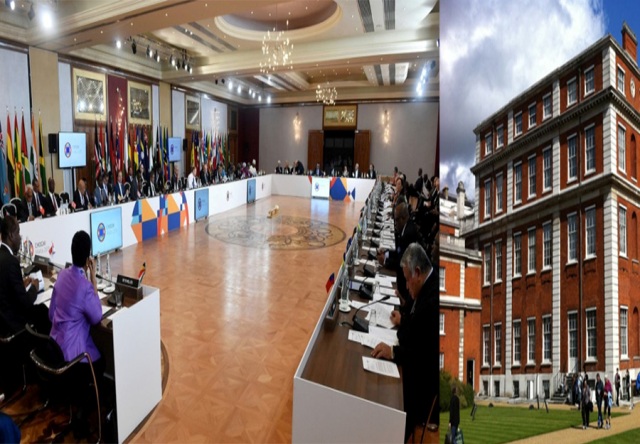 Can Commonwealth Organisations help to deliver the goals agreed by leaders in Malta? [photos: CHOGM closing session, Malta COI, Marlborough House, ComSec]
Can Commonwealth Organisations help to deliver the goals agreed by leaders in Malta? [photos: CHOGM closing session, Malta COI, Marlborough House, ComSec]
Commonwealth Organisations (COs) are a diverse group, operating under widely varying forms of organisation, rules of membership, sources of financial support, and norms of governance. For the Commonwealth to harness and direct their potential would require investment of time and money that neither Member States nor the Secretariat appear ready to make, and the Foundation can no longer do so.
However, recently COs have mobilised to take the initiative by engaging in quarterly meetings of an Informal Forum of Commonwealth Organisations (IFCO), set up to aid engagement with the Secretariat.
In preparation for an imminent UK CHOGM, COs are investing considerable effort in the biennial process of advocating for policy positions in the CHOGM Communiqué. This is an opportunity to demonstrate what COs could contribute, given a receptive Secretariat and Heads, to delivery of a new Commonwealth Development Paradigm. In Malta, Heads agreed to present a common position in support of both the Paris Accord and the Global Goals. The principle of universality in the Goals (SDGs) is perfectly suited to implementation by an international set of organisations from North and South, consistent with the SDGs, the Paris Agenda and within planetary boundaries. And a cooperation of the Secretariat with COs has recently produced a Commonwealth Curriculum Framework for the Sustainable Development Goals, which could serve as the basis for production of the skills needed for implementation of the SDGs across the Commonwealth.
Harnessing CO power
In 2015, COs committed to a reflective analysis of their own capacities and performance, and the IFCO has used COs’ 2015 Annual Reports to map thematic groupings across the fields of Health, Education, Human Rights and Law, Culture and Media, Accounting, and Business. This has been followed by an in-depth analysis of the Education Sector which may serve as a model for review of the other sectors. When the Foundation was reviewing its policy of funding COs in 2013, there was no available analysis of COs or adequate documentation by COs of their own contribution.
The lack of understanding of COs’ potential contribution was reflected in the failure of a recent campaign by education COs to save the Secretariat’s Health and Education Unit from closure. COs were assured that health and education would be ‘mainstreamed’ in the new organisational structure, but until the Secretariat releases the Delivery Plan, it is not clear how they will be mainstreamed.
Governance of COs is a further issue. The Secretariat has an Accreditation Committee that should be in a position to address questions of ethics and governance of COs, and which is currently consulting with COs about their classification into ‘Associated’ and ‘Accredited’ categories. This consultation could usefully be extended to include the question of the benefit of the ‘Commonwealth’ brand, not always a benefit when seeking funding; as well as governance issues.
If COs are to make an effective ‘third pillar’ of the Commonwealth, there needs to be work on both sides of the relationship. COs comprise some 10 Associated Organisations that have a quasi-governmental role (e.g. Commonwealth Local Government Forum, Commonwealth Parliamentary Association), and another 85 Accredited Organisations. Of these, one in four is headquartered outside London. They can be grouped thematically across several domains: education; health/medicine; law; human rights; human settlements; social welfare/wellbeing; and finance, accountancy and business. Most of these groupings have their origins in the Commonwealth professional bodies, with a number of advocacy organisations accredited more recently, by an Accreditation Committee set up in 2003. Since 2015, COs have been required to supply annual reports. In the context of major turnover of staff at the Secretariat, COs best represent the institutional memory of the Commonwealth. Groupings of cognate COs would help with two-way access between the formal and the informal Commonwealth.



